Facebook has surpassed 2-billion active users. Officially, the social media is also used by 27% of the entire planet Earth. Its CEO Mark Zuckerberg wrote a letter of congratulations to Facebook users, thanking them for using his product. While it took 8 years – from 2004 until October 2012 – to reach the first billion users, the second billion was achieved in less than 6 years.
If that trend were to continue, it would probably take between 3 to 4 years to reach the next billion. Of course, there’s no guarantee that Facebook’s growth could be as stunning as it did when the company skyrocketed from 1-billion to 2-billion active users. For all we know, Facebook could hit saturation sooner than we thought.
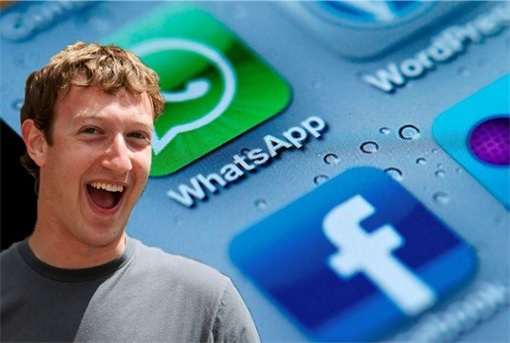
However, Zuckerberg could still grow his next weapon – WhatsApp – of which has more than 1.2-billion users every month who send more than 50 billion messages per day (according to Facebook’s Q4 2016). Depending on whom you spoke to, Mark Zuckerberg is either one very lucky guy, or one very skillful thief. Until today, people still talk about how he stole the idea of Facebook.
To argue whether Zuckerberg had or hadn’t stolen the idea could take hundreds of pages of an article. Suffice to say that if Zuckerberg didn’t steal the idea when he was hired by Winklevoss brothers to work on a harvard social network called “Harvard Connection”, he wouldn’t have had to pay the twins US$20 million cash and 1.2-million shares to end a lawsuit, would he?
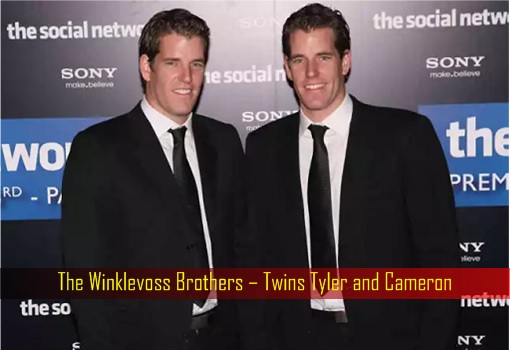
Therefore, there’s little doubt that Mark Zuckerberg had indeed stolen the idea from the Olympic rowers and internet entrepreneurs. What we don’t know but are eager to know, but both Winklevoss twins and Mark Zuckerberg refused to gamble, is a judge’s decision about “stolen ideas”, an argument rarely is actionable in a court of law.
It appears that Zuckerberg didn’t only steal idea from the Winklevoss brothers; he was also amazingly good at stealing business deals, based on a latest report from Bloomberg. In early 2014, Tencent – the creator of WeChat – was interested in buying the messaging service WhatsApp. Such acquisition would have catapulted Chinese Internet giant Tencent immediate access to U.S. and global market.
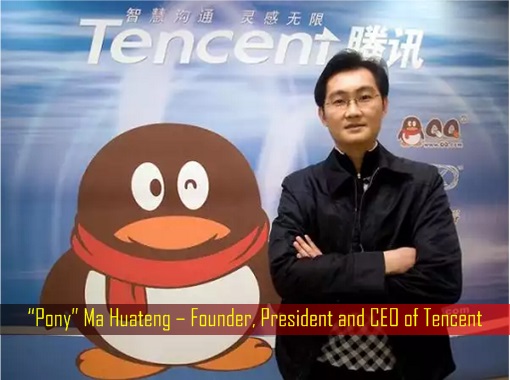
Imagine the merger of WeChat and WhatsApp users into a single entity. Even if Tencent were to maintain both products as a separate component, the Chinese would control and monopolise the world’s instant messaging. Unfortunately, as Tencent and WhatsApp owners were nearing the final stages of an agreement, “Pony” Ma Huateng, had to undergo back surgery.
Mr. Ma, co-founder and chief executive officer of Tencent, couldn’t make a trip to Silicon Valley for a negotiation with WhatsApp founder Jan Koum as a result of his sickness. Mark Zuckerberg then swooped in to acquire WhatsApp for US$19 billion on February 2014, more than twice what Tencent had considered paying.
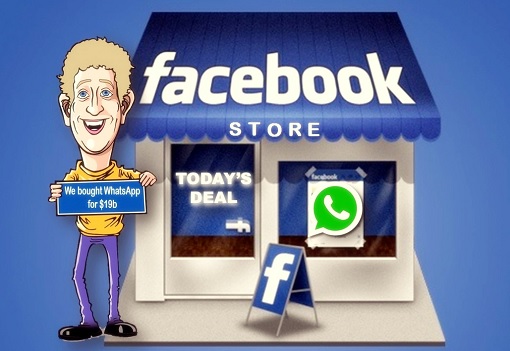
The deal is Facebook’s largest acquisition to date, and was the largest purchase of a venture-backed company in history at the time of the acquisition. Interestingly, the founders of WhatsApp – Brian Acton and Jan Koum – were both former employees of Yahoo!. In fact, both had applied for jobs at Facebook at one point, but were rejected.
Zuckerberg claimed that the WhatsApp acquisition deal was made quickly over a dinner meeting in early February 2014. However, it’s unknown if Zuckerberg actually knew about Tencent’s Ma Huateng intentions and offer price, and bought WhatsApp at insane price for the sake of blocking WeChat from becoming the world’s biggest instant messaging player.
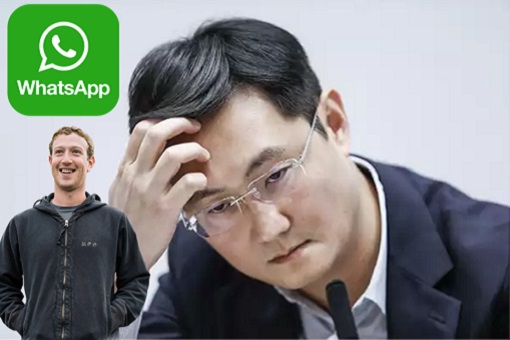
But “Pony” Ma Huateng isn’t crying over his failure to acquire WhatsApp. He is building lots of values around his baby – offering WeChat Pay – in English-speaking countries. It’s estimated that around 1500 Australian retailers have already installed WeChat Pay at the point of sale. In 2016 alone, more than a million Chinese tourists visited Australia while around 200,000 Chinese students at in the country.
In fact, based on its latest report, 44.5% of its 889 million monthly active users (financial year 2016) prefer to use WeChat Pay than cash or credit card. The average time spent in WeChat is now 66 minutes, surpassing that of Facebook’s average 50 minutes. Tencent is determined to challenge the world after its domination in China – even after Zuckerberg had stolen WhatsApp.
Other Articles That May Interest You …
- China Invasion – Top 10 American Iconic Brands Now Owned By Chinese
- Here’s Why Zuckerberg Was Furious When SpaceX Rocket Exploded
- Launched & Tested!! – Why Google Duo Is The Best Video Chat App You Must Have
- WhatsApp To Sell Your Phone No To Evil Zuckerberg – Here’s How To Stop It
- Zuckerberg The “BrainWasher” – Facebook Decides What News You Should Read
- Here’s How 50 Engineers Manage 900 Million WhatsApp Users
- Beware!! Facebook Can Tell If You’re A “Narcissist” Or “Insecure”
- Finally, You Can Save Some Money With Free WhatsApp Voice Calls
- Revealed – Why Facebook Mark Zuckerberg Wears The Same Shirt Every Day
- Security Tips From Edward Snowden – Get Rid Of Facebook, Google & Dropbox

|
|
June 29th, 2017 by financetwitter
|


|

|

|

|

|

|




























Comments
Add your comment now.
Leave a Reply